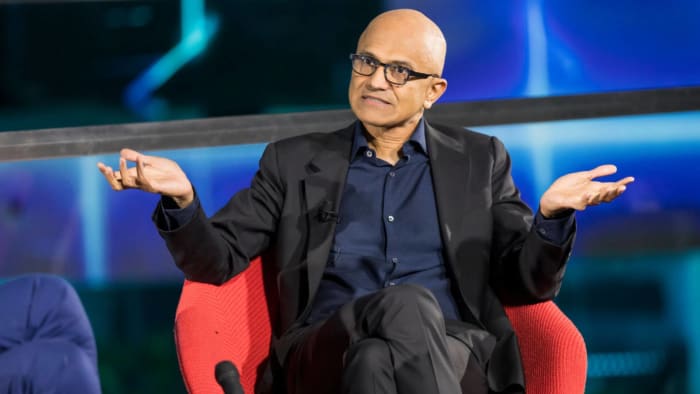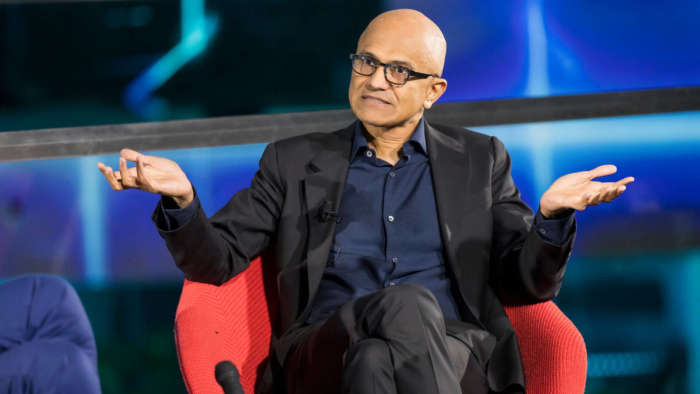Microsoft’s AI Plans Threaten to Replace Human Workers, Report Reveals
The launch of ChatGPT in November 2022 marked the beginning of the current artificial intelligence (AI) revolution, leaving many to wonder about the potential dangers of this technology. For decades, science fiction has depicted a robot uprising, but recent advances have led to speculation that this dystopian future may not be so far away.

Microsoft CEO Satya Nadella is pushing for the adoption of agentic AI to transform the modern office. The company’s recent report outlines a vision for a future where AI does more than just data organization and customer service. Microsoft predicts “the rise of the agent boss,” where humans manage teams of AI bots.
The report, based on surveys of 31,000 workers across more than 30 countries, suggests that organizations need to adopt a new metric: the human-agent ratio. Leaders must determine how many AI agents are needed for specific roles and tasks and how many humans are required to guide them. A study cited in the report found that individual workers using AI outperform colleagues without it, while teams composed entirely of AI workers produce the highest-quality work.
These findings may seem alarming to workers in various industries, as they face the possibility of being replaced by AI or pivoting to manage AI agents. Microsoft’s vision reflects a broader trend among tech giants, with the company claiming that embracing the human-agent ratio will create new jobs while eliminating others.
The ultimate takeaway is that Microsoft is committed to ushering in the rise of AI agents, creating a world where they are no longer just tools but integral parts of the workforce. However, it remains unclear how long it will take for companies to start fully trusting AI with important tasks previously done by human workers.
As the future of work shifts rapidly, some mysteries remain. While Microsoft’s report suggests that AI will bring about significant changes, the exact timeline and impact on employment are still uncertain.


